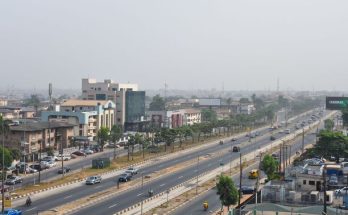By Sunkanmi Adewunmi
Nigeria faces major health challenges, from high maternal and child mortality to infectious diseases and underfunded hospitals. Experts believe technology and data can help close these gaps. Lagos State, Nigeria’s most populous, is leading a digital “health revolution.” In May 2025, officials met in Ikeja to assess an electronic health record (EHR) rollout across 100 primary clinics. Governor Babajide Sanwo-Olu and Health Commissioner Akin Abayomi aim to expand this statewide through a new Smart Health Information Platform (SHIP), designed to integrate data from all levels of care. With real-time tracking of immunization, disease outbreaks, and patient histories, Lagos hopes data-driven policies will speed responses and personalize care.
What’s rolling out
Doctors in Lagos are increasingly adopting telemedicine and digital records. In Ikeja, the Ojodu Local Council launched a Local EMR (LEMR) system at Ogba PHC, giving patients digital health cards and centralised records. “The old paper ledger is outdated and inefficient,” the council chairman said. “With EMRs, patient information is instantly accessible, enabling faster, more accurate care.” Now, antenatal records can move seamlessly between Ikeja clinics and LASUTH. Private facilities like Isalu Specialist Hospital also offer digital imaging and secure electronic storage, while telemedicine platforms connect Lagos doctors with specialists nationwide and abroad through video consultations and shared lab data.

Despite progress, major barriers hinder Lagos’s digital health shift. Many clinics still lack steady power and internet—roughly 59–60% of Nigerians have access to electricity and 45.4% have online access. Setting up fiber networks and generators in Ikeja is costly, and installing basic EHR systems can exceed $10,000 per clinic annually. Local studies show widely varying levels of computer literacy among health workers; many primary-care staff need basic ICT training before EHRs can be scaled. To bridge the gap, Lagos launched “Digital Health Champions” to train nurses and record officers, but scaling across Ikeja’s many clinics will take time.
Patients also face challenges. Studies show that low digital literacy, trust issues, and information overload can hinder e-health adoption. Simply offering an app doesn’t ensure use—too many alerts or unclear privacy terms can discourage patients. Lagos officials stress that digitization must be locally driven, with systems like LAG-ID cards linked to the Ilera Eko insurance scheme. “We want EMRs to be co-financed, locally owned solutions,” they note, ensuring lasting impact beyond donor-funded pilots.
Key barriers can be summarized as:
- Infrastructure: Unstable power and patchy internet access in Lagos’s low-income areas make digital systems fragile.
- Cost: Modern EMR platforms and data networks are expensive to install and maintain.
- Training & Culture: Many healthcare workers and patients lack digital skills or trust in new systems.
- Policy & Funding: Nigeria’s regulations on data privacy and health IT are still evolving, and sustainable budgets are needed (not just one-year grants).

Why it matters
Nigeria bears a heavy health burden, with maternal mortality over 500 per 100,000 births and persistent diseases like malaria and polio. Better data can save lives—alerting outbreaks faster and ensuring patients get treatment. Lagos health director Dr. Oladipupo Abudu notes that clinic data can guide fairer distribution of supplies, staff, and outreach programs. Improving Ikeja could set a model for the rest of the city’s 20+ million residents.
Looking ahead, Lagos plans to expand the Ikeja pilots to all 326 primary clinics and eventually link every hospital and lab through the Smart Health Information Platform (SHIP). Federal initiatives like the Nigeria Digital Health Initiative aim to set national standards and boost local tech. If funding, infrastructure, and training gaps are addressed, tech-savvy Nigerians could develop apps to track community health in real time. EMRs simplify workflows, speed referrals, and improve patient care. While not a cure-all, data-driven health in Ikeja could demonstrate a path for Nigeria’s broader health system transformation.
Sources:
- Citizen News Nigeria. Lagos Drives Digital Revolution In Primary Healthcare
- Technology Times. Lagos digitises 100 health centres in data integration puch
- Nigeria Health Watch. Data is life: Achieving Nigeria’s Digital-in-Health Approach
- The Global Journal of Medical Studies. Barriers to the Adoption of Electronic Health Records in Nigerian Healthcare Systems: Analysing Infrastructure, Training and Policy Challenges
- Nature. Exploring the resistance to e-health services in Nigeria: an integrative model based upon the theory of planned behavior and stimulus-organism-response








